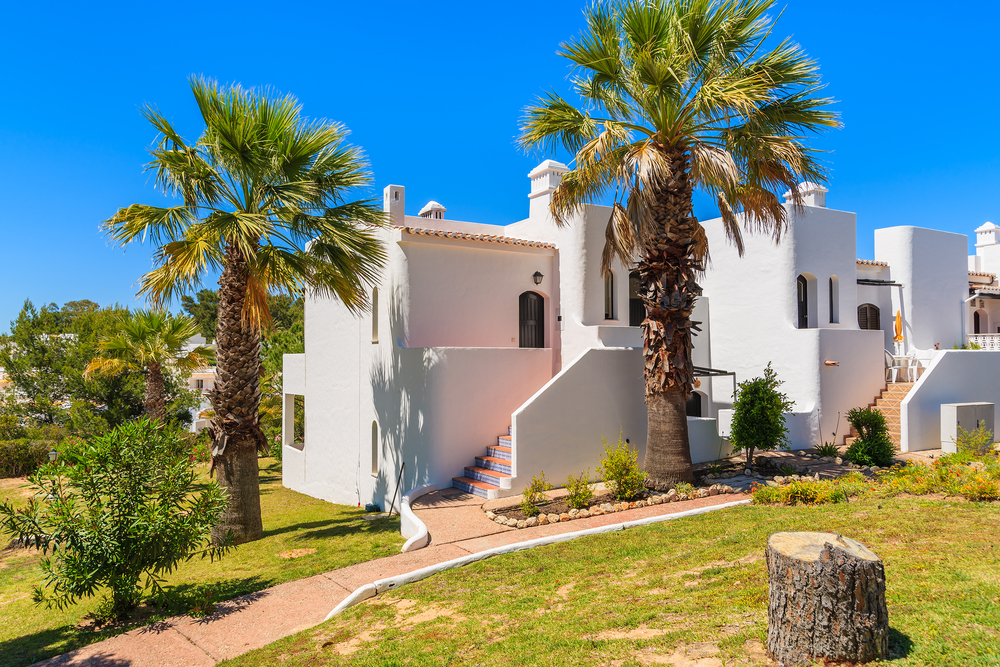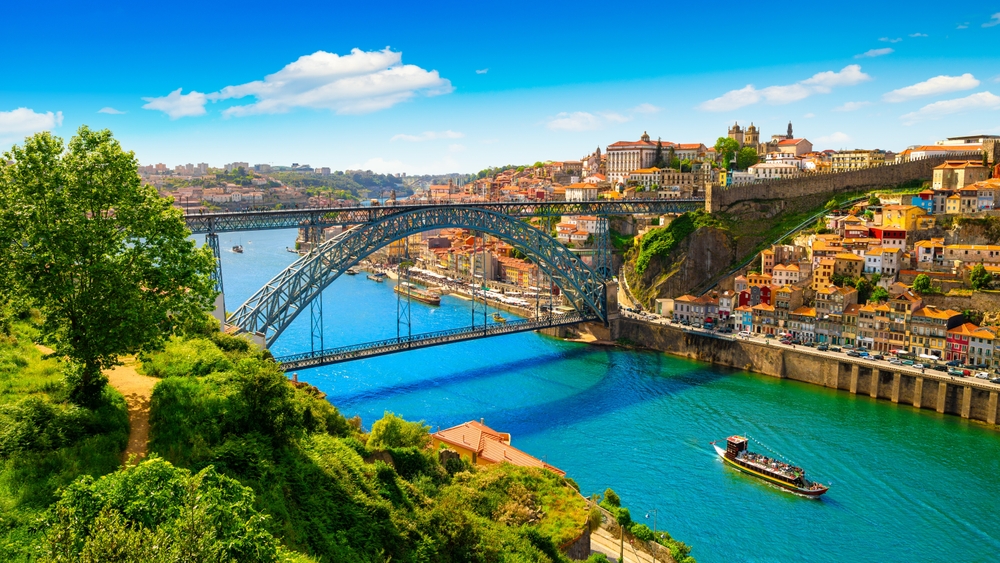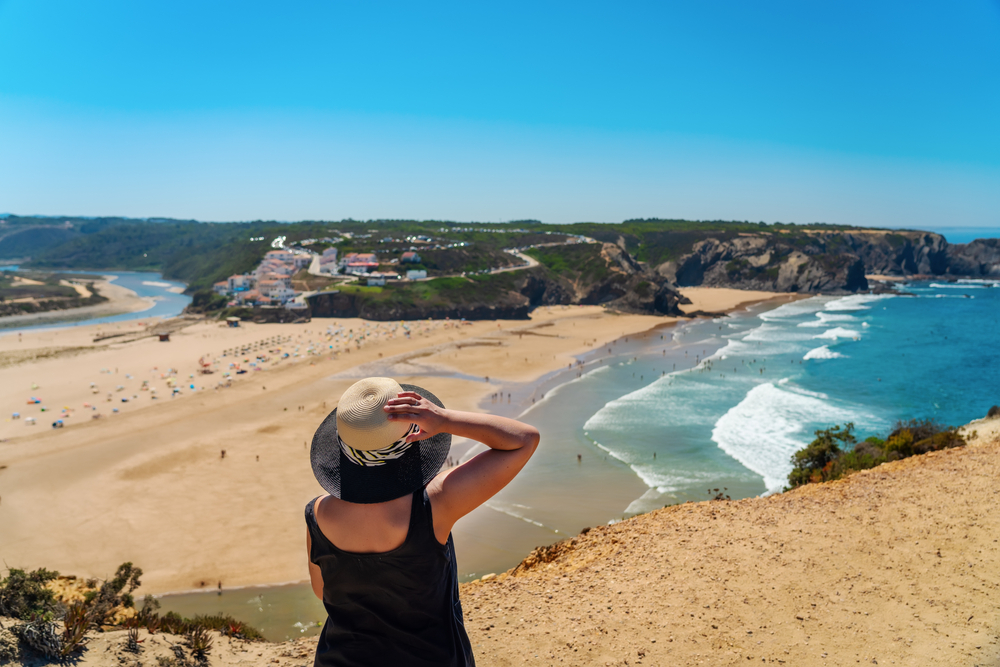
As you prepare to move to Portugal in 2025, it’s essential to set clear relocation goals to ensure you start with the right foundations for life in Portugal.
Let’s explore the most important factors, from preparing for Portugal’s visa application process, researching properties and locations to cultural integration.
What are Portugal’s visa and residency requirements?
One of your primary goals should be to understand and fulfil the relevant Portuguese visa and residency requirements.
Portugal offers many residency visa options, including the popular Golden Visa residency-by-investment programme. This allows investors and their families to obtain residency by investing in one or more of Portugal’s approved regulated alternative investment funds. This includes the ability to secure permanent citizenship and freedom of movement across the 29 European Schengen region countries.
The only requirement is to be in Portugal for seven days a year.

The D-visa residency options require holders to stay in Portugal for six consecutive months in a calendar year.
The D2 Entrepreneur Visa specifically targets those who have already invested or intend to engage in investment activities in Portugal.
Meanwhile, the D3 Visa is a work visa for highly-qualified professionals and their families who have a job offer or contract from a Portuguese company. It is designed to attract top talent to work in Portugal’s high-demand sectors, such as technology and science.
The D7 Visa provides residency to non-EU citizens with regular passive income who relocate to Portugal, although this is set to change in January 2025 due to the Non-Habitual Residency (NHR) tax regime coming to an end to new entrants as we are still awaiting the final government legislation on what replaces the NHR tax regime or information on the new NHR 2.0 tax regime, as it has been referred to.
The minimum income requirement can vary based on the number of dependants that the main applicant wishes to include.
The main applicant must have an income equal to 100% of the minimum wage, which is currently €9,120 per annum. This increases for dependants, with an extra 50% for a spouse or any family member over 18 and 30% for each child under 18.
The D8 Visa, known as the Digital Nomad Visa, allows non-EU/EEA citizens to live and work remotely in Portugal. Applicants must be able to provide evidence of remote or freelance jobs and have a consistent monthly income four times Portugal’s minimum wage, which is approximately €3,280 per month.
Paul Stannard, Chairman and Founder of Portugal Pathways, said: “The goal for those planning their move to Portugal should be to determine which visa category best suits their situation. People should first and foremost think about what they want to achieve out of life or investment in Portugal and align their residency plans with location scouting from that basis.
“We can support families and individuals throughout this whole process so that they can have a soft landing when making plans to move to a new country like Portugal.”

Cross-border structuring and budgeting in Portugal
Effective cross-border income and asset estate planning should align with your life plans in Portugal. Set a goal to create a detailed budget that accounts for all aspects of your new life in Portugal. Research the cost of living in areas that align with your life goals and compare, as this can vary significantly across Portugal’s many towns and cities.
However, the cost of living on the whole is much more affordable than in North America, the UK, and most of Europe.
It is also important to have professional advisors, such as Portugal Pathways and Portugal The Place, who can help you avoid unnecessary mistakes that are easy to make when relocating to Portugal.
If you're bringing money from abroad for significant expenditures such as property or school fees, factor in potential currency exchange rate fluctuations.
Planning for currency exchange with a target exchange rate can save you a lot of money, especially when budgeting for the housing market in Portugal.
FX price comparison tools can help dramatically reduce the cost of international money transfers and help you find the best provider for you.
Make sure to obtain a Portuguese NIF (Número de Identificação Fiscal), which is issued by Portugal’s tax authorities.
What is an NIF, you might ask? It’s a nine-digit taxpayer identification number issued by the Portuguese Tax and Customs Authority (Autoridade Tributária e Aduaneira). It is essential and used for filing taxes, opening a bank account, buying or selling property, and conducting any type of official business in Portugal.
Aim to open a Portuguese bank account within your first month of arrival to simplify financial transactions and bill payments.

Securing suitable property in Portugal
The real estate market in Portugal is in high-demand, especially in areas like the Golden Triangle in the Algarve, Porto, the Silver Coast and Lisbon’s upmarket neighbourhoods.
Set a goal to start your property search at least four to six months before your move. Consider working with a buy-side real estate firm, as they can help navigate the local market and find properties suited to your needs and budget.
Colleen Showalter, CEO and co-founder of Portugal The Place, an organisation that supports individuals and families relocating to Portugal, said: “Finding your perfect new home in Portugal can feel a little overwhelming at times. We provide a comprehensive property scouting service to support clients through the process.
“Having people in the country who have walked this path before, getting a real feel for the destinations you’re considering, can help massively before your move.
“We can help those moving to Portugal research prospective destinations to ensure they align with your life goals.”
Navigating Portugal’s healthcare and insurance
Ensuring access to quality healthcare is vital. Before your move, make it a goal to research and understand the Portuguese healthcare system. If you're eligible, plan to enrol in the Portuguese National Health Service (SNS) within your first month of arrival.
To access the SNS, you must be a legal resident of Portugal. You can register with a local health centre upon receiving your residency permit. Make sure to bring your residency permit, passport, and social security card with you.
EU, EEA, or Swiss citizens should obtain an EHIC before moving to Portugal. The EHIC covers necessary healthcare services during temporary stays in Portugal. However, it's not an alternative to health insurance, as it does not cover all medical services or repatriation costs.
For US citizens, you will need to apply for private health insurance during your period as a temporary resident. Fortunately, private health insurance is substantially more affordable in Portugal. Once you have secured your permanent residency, you can access the SNS.
UK citizens can use the Global Health Insurance Card (GHIC), which replaced the European Health Insurance Card (EHIC) after Brexit, for temporary stays of up to 90 days.

When applying for a Schengen Area visa or a long-term visa to stay in Portugal for more than 90 days, non-EU citizens must provide proof of health insurance that meets the following criteria:
1. Minimum coverage of €30,000
2. Valid throughout the Schengen Area
3. Clear acknowledgement of coverage in Portugal
4. Coverage duration of at least four months to one year
5. Repatriation coverage (the cost of returning someone to their home country in the event of an illness or injury)
It's important to note that this "visa insurance" differs from standard travel insurance.
Finding a tailored solution that meets your specific needs will give you peace of mind when starting your new life in Portugal.
Language and cultural integration in Portugal
While many Portuguese people speak English, especially in areas popular with tourists, learning the local language will significantly enhance your experience. Set a goal to achieve basic Portuguese proficiency within your first six months to facilitate cultural integration and enhance your experience.
This could involve enrolling in language classes, using language learning apps, or engaging with local conversation groups.
Additionally, aim to immerse yourself in Portuguese culture. Set a goal to participate in local events, try traditional cuisines, and engage with your new community. This will enrich your experience and help you build a social network in your new home.

Colleen, at Portugal The Place, adds: “The first few weeks and months are so important when planning your move to Portugal.
“People who use our property research and scouting solutions can also add on our Ajuda services, which can help make your life easier and more comfortable as you settle in. We can help with everyday tasks, urgent situations, or understanding local systems.”
Having a support network within the country, especially during the lead-up to the move and your first weeks and months, can provide unparalleled peace of mind.
About Portugal Pathways
Portugal Pathways has supported hundreds of Golden Visa residency-by-investment applications and provides expert guidance through its professional supply chain network on luxury property, wealth management, tax optimisation, private healthcare, money transfers and bespoke relocation solutions to enhance life and investments in Portugal.
About Portugal The Place
Portugal The Place is a relocation service dedicated to assisting individuals in moving to Portugal, offering personalised support in location scouting, rental and home purchasing processes, and post-relocation services such as utility setup and coordination of deliveries. Their team comprises expatriates who have first hand experience in relocating, aiming to provide fair and realistic investment advice tailored to each individual's needs and budget.
Disclaimer: The information on the Portugal Pathways and Portugal Investment Owners Club (P Club for short) websites and in email communications is for general informational purposes only and should not be construed as legal, tax, or financial advice. You should consult and check with a qualified professional advisor before relying on any information provided on this website or in email communications. As it relates to investments in Golden Visas or other wealth management solutions offered by regulated and professional advisors, it is important to note that past performance is no guarantee of future returns. Private equities can be highly illiquid and come with risk and should always be under professional independent advice.
Secure EU Residency Through Portugal’s Golden Visa By Investment
Gain visa-free travel, family inclusion, and a secure path to EU citizenship
Maximise your wealth, tax status, property & life in Portugal
Talk to our expert team, so that we can offer personalised support to meet your specific needs.





